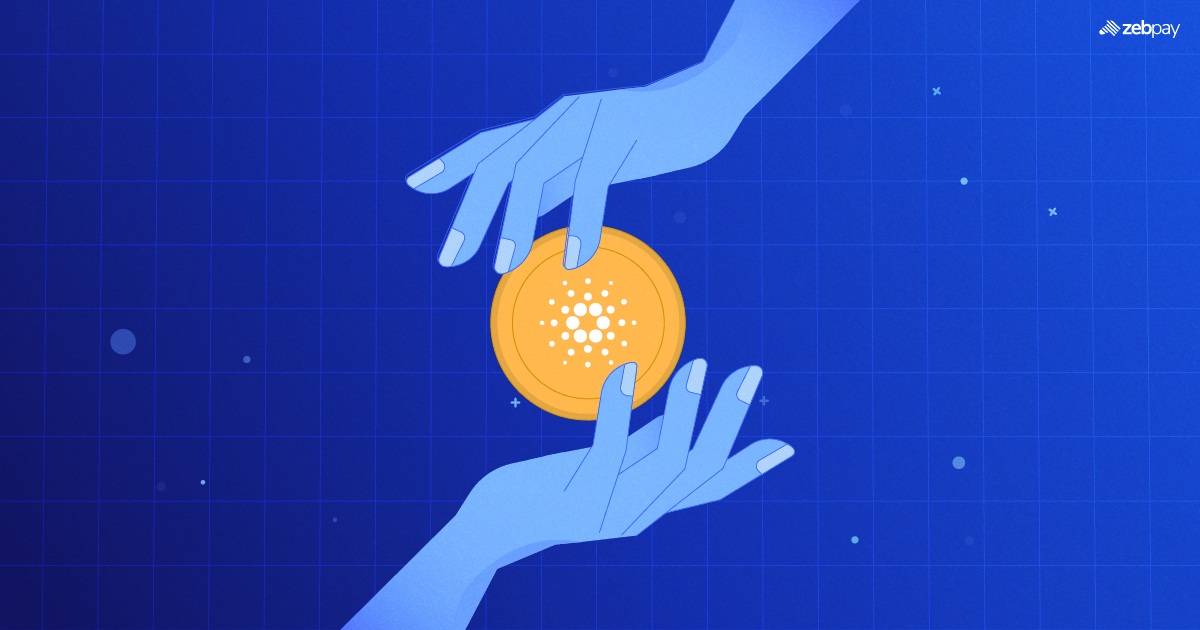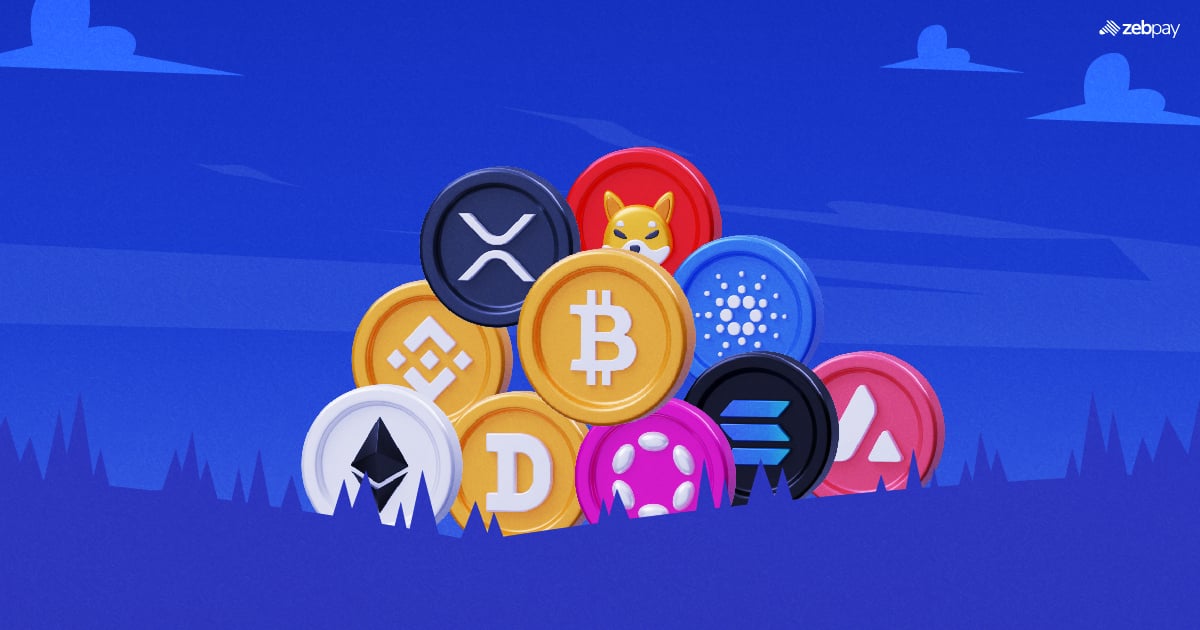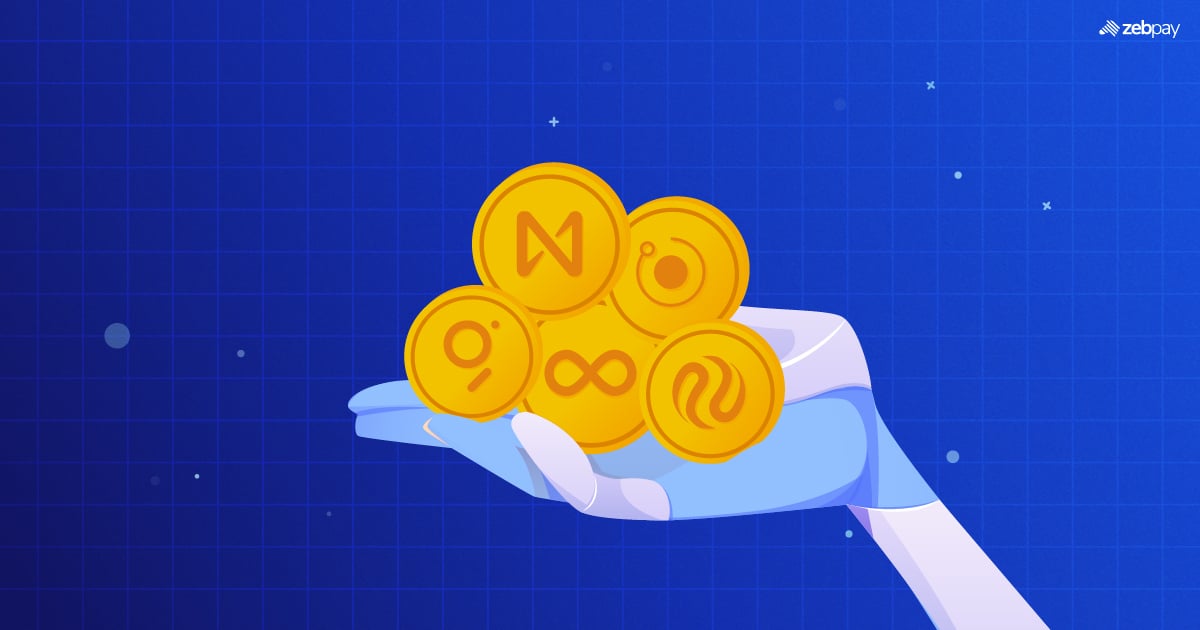Have you ever wanted to earn passive income through crypto, but found the high-stakes trading world daunting? Cardano is a decentralised blockchain platform that lets you do exactly that. Staking is a process that helps secure a blockchain network and earn rewards through it. This guide explains how to stake Cardano and the best practices to maximise your rewards.
What is Cardano Staking?
Cardano follows a proof of stake consensus mechanism. This algorithm allows users to participate in the network’s security by staking their ADA coins. When you stake ADA, you delegate your coins to a staking pool, which acts as a validator for the network. When a block is added to the Cardano blockchain, the staking pool’s participants are rewarded for their services.
Staking is essential for maintaining the security and decentralization of the Cardano network. By staking your ADA, you contribute to the network’s consensus and receive a portion of the rewards generated by the network.
Read more: What is Proof of Stake
How to Stake Cardano?
Staking Cardano is a straightforward process that can be done through a Cardano wallet or an exchange that supports staking.
- Obtain ADA: To stake Cardano, you first need to obtain ADA. You can purchase ADA on any crypto exchange like ZebPay, Binance or Coinbase. Users should do their own research before choosing an exchange.
- Choose a Cardano wallet: You will need a Cardano wallet to stake your ADA. You can choose a desktop, mobile, or hardware wallet that supports Cardano staking.
- Delegate your ADA: Acquiring ADA lets you delegate your coins to a staking pool. In your Cardano wallet, navigate to the staking section and choose a staking pool to stake your ADA.
- Wait for rewards: Once you have delegated your ADA, you will start being rewarded through your wallet. The rewards are distributed among the participants of the staking pool.
Read more: What is Crypto Staking
Choosing a Staking Pool
Choosing the right staking pool is crucial to maximizing your Cardano staking rewards. When choosing a staking pool, consider the following factors:
- Pool Performance: Look for staking pools that have a high-performance rating. A high-performance rating indicates that the pool has a high uptime and has validated many blocks in the past.
- Pool Fees: Staking pools charge fees for their services, typically between 1% and 5%. Look for staking pools with reasonable fees that do not affect your rewards.
- Pool Size: Staking pools have a maximum capacity, and delegating to a large pool may reduce your rewards. Consider delegating to a smaller pool with a reasonable size.
Cardano Staking Return on Investment
Cardano staking rewards are distributed among staking pool participants based on the amount of ADA they have staked. The more ADA you stake, the more rewards you will earn. However, choosing a high-performing staking pool with low fees can also significantly impact your overall Cardano staking return on investment (ROI).
The Cardano network generates a fixed amount of ADA rewards every epoch (approximately five days). These rewards are distributed among staking pools and their participants based on their total contribution.
The amount of ADA you can earn through staking depends on various factors. These include the number of ADA you have staked, the staking pool’s performance, and the staking pool’s fees. By delegating your ADA to a high-performing staking pool with low fees, you can maximize your Cardano staking rewards and overall ROI.
Cardano Staking Best Practices

To maximise your Cardano staking rewards, follow these best practices:
Delegate to a High-Performing Pool
Choose a staking pool with a high-performance rating to ensure that the pool validates many blocks and generates more rewards.
Diversify your Staking
Consider delegating your ADA to multiple staking pools to diversify your staking and reduce the risk of potential pool downtime or other issues that may affect your rewards.
Regularly Monitor your Staking Rewards
Regularly check your staking rewards and switch to a different staking pool if you are not satisfied with the rewards or the pool’s performance.
Read more: Cardano VS Solana
Common Mistakes to Avoid When Staking Cardano
To avoid potential issues and maximize your staking rewards, here are some common mistakes to avoid when staking Cardano:
Choosing a Pool Based on High Rewards Alone
Choosing a staking pool based solely on its high rewards may lead to disappointment in the long run. High rewards may be due to high fees or a small pool size that may not generate consistent rewards over time.
Not Checking the Pool Performance
Not checking the pool performance before delegating your ADA may result in delegating to an underperforming pool that generates fewer rewards and reduces your ROI.
Delegating to a Pool with a Low Uptime
Delegating your ADA to a pool with a low uptime may lead to missed rewards and reduce your ROI. Always check the staking pool’s uptime before delegating your ADA.
Conclusion
Staking Cardano is a simple and effective way to participate in the network’s consensus and receive rewards in return. By following the best practices and avoiding common mistakes, you can maximize your staking rewards and contribute to the security and decentralisation of the Cardano network. Remember to regularly monitor your staking rewards and adjust your staking strategy accordingly to maximize your returns.
You can read more about Crypto, Blockchain and Web 3.0 on ZebPay Blogs. Click on the button below and join the millions trading on ZebPay.







